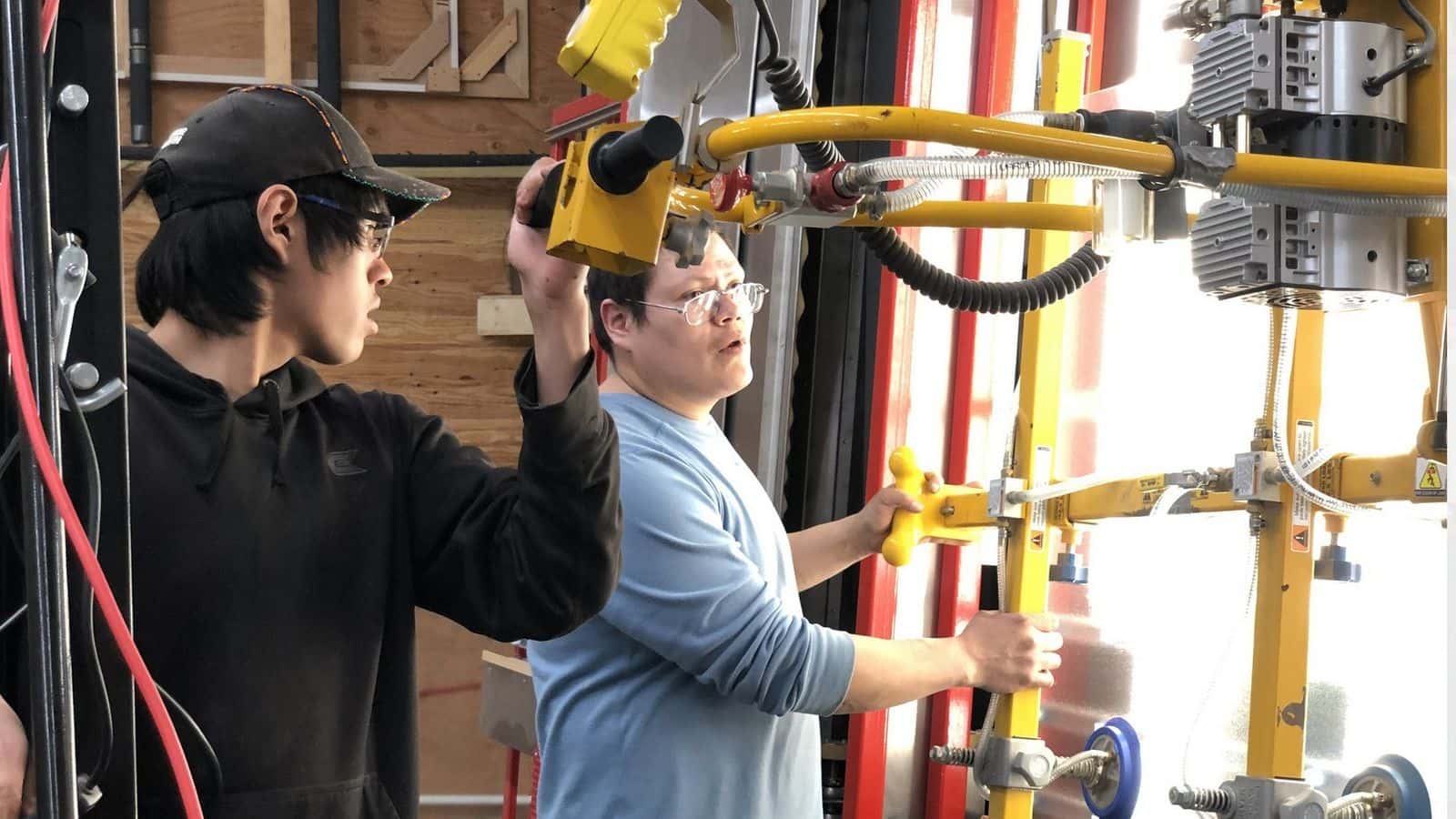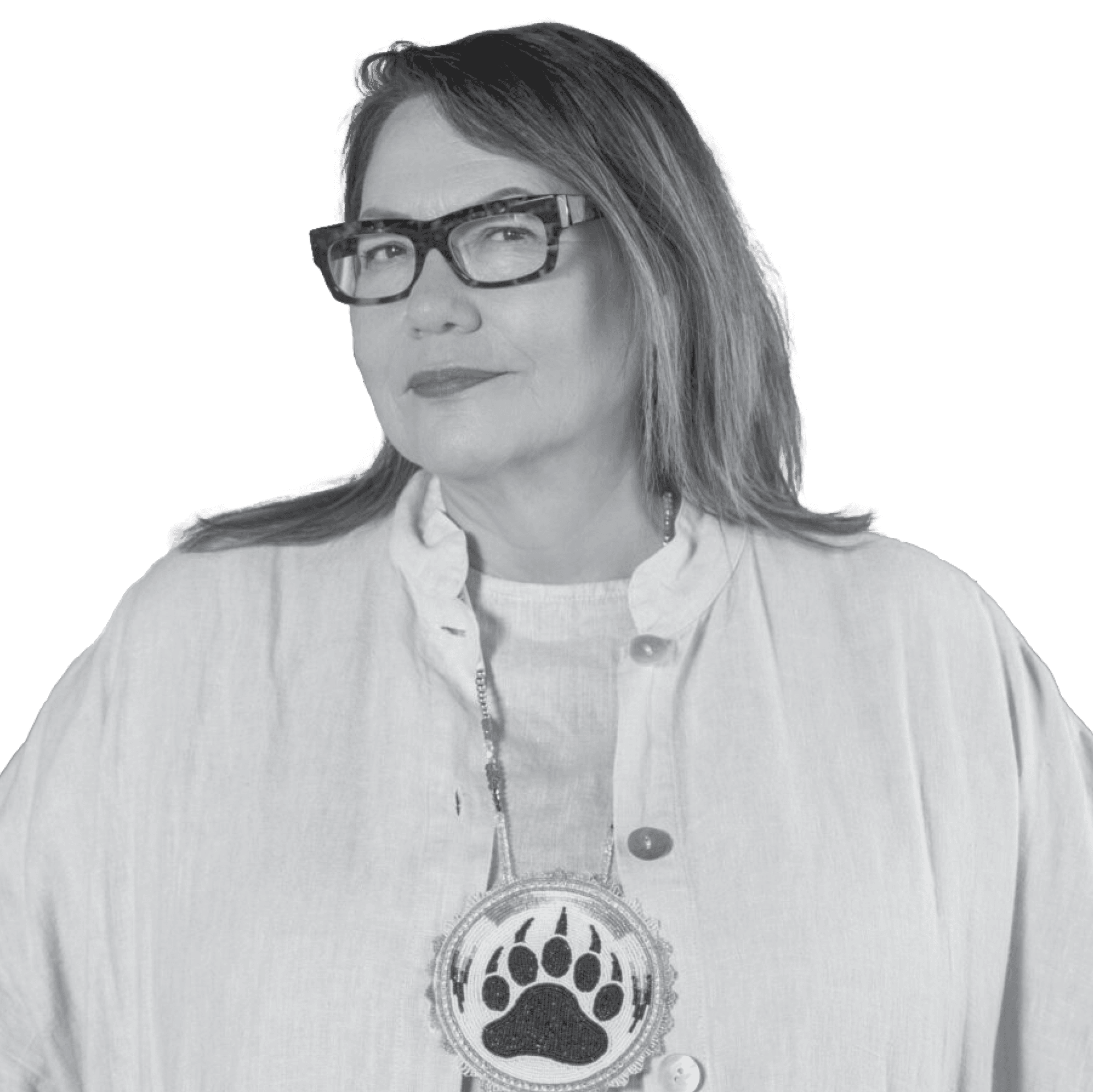
By Christian HustadBuffalo’s Fire Correspondent
Wizipan Little Elk, CEO of the Rosebud Economic Development Corporation, recently addressed nonprofit leaders about fulfilling community needs through economic development corporations. Little Elk shared a story on how his community improved their food security by starting their own farmer’s market.
He told online participants of Strengthening the Circle, a Native nonprofit leadership program, how the development corporation started the food program. It was a response to community members who wanted gardens and a place to sell their produce. At first, nobody came to buy produce, but eventually the venture grew to become the third largest market in South Dakota.
“We’re open with our mistakes and learn from them,” Little Elk said. “We don’t focus on our problems, instead we focus on regeneration and bringing that to the forefront. Our best days are ahead of us.”
Bonnie Sachatello-Sawyer, executive director of Hopa Mountain, collaborated with four partner organizations to organize the 15th annual Strengthening the Circle. STC assists nonprofit managers to do everything from managing their finances and filing taxes to offering general advice on how to streamline daily operations.
A report published in 2020 titled “The Power of Native Nonprofits” found that nonprofits leaders who attended Strengthening the Circle seminars were more likely to file their organization’s taxes, which is necessary in keeping their 501(c)(3) tax status. Strengthening the Circle’s virtual event was held April 19-22. It marked the first time the conference -- normally regional -- included participants from across the country.
Jessica Gilbertson, marketing manager of MABU, Marketing and Advertising Business Unlimited based in Bismarck, N.D., stressed the importance of business relationships. Other presenters also emphasized the significance of building relationships between funders, nonprofit leaders and the environment.
In addition, Gilbertson offered advice on how to work with community foundations and how to engage in fundraising, including capital and membership campaigns, online fundraising, and grant strategies. “Don’t think of relationships as transactional, imagine you’re going on this journey together,” she said.
Overall, the virtual conference centered on the rights of Mother Earth, a keynote topic of speakers Henrietta Mann, a Cheyenne elder and educator, and Tina Ngata, a project researcher with the Institute of Environmental Science and Research in New Zealand.
“Earth and all the relatives of Earth have a right to life, protection, and freedom from destruction, pollution, infection and exploitation,” said Mann. “Indigenous thinking has always emphasized the right of all life forms to exist as co-equals and equally defined partners on Earth."
Ngata, who joined the Zoom event from New Zealand, reminded viewers how the Doctrine of Discovery -- Papal Bull decrees granted by popes of the Catholic church that allowed Christian explorers to lay claim to lands not inhabited by Christians -- allowed for the dehumanizing of the planet and humans for profit.
“People who enjoy this space of economical and political privilege ignore these facts," said Ngata. "We really can’t carry on with this charade of wanting to solve the planet, but not when it causes us discomfort and not when it falls upon us to give up our positions of power and privilege.”
Hester Dillon with 4 Rivers Consulting led a conversation between community fund managers and nonprofit executives about how money gets directed -- or not -- to grassroots organizations to protect the environment. Chris Peters, president of the Seventh Generation Fund, a partnering organization of Strengthening the Circle, addressed funding and climate change.
Sometimes nature can impel us to make changes, said Peters. “It’s by force, sometimes, but we can do it by choice. It’s easier to make the move to address climate change, rather than waiting for nature to force that change.”
A number of nonprofit organizations do manage earth-friendly initiatives, such as Akiing 8th Fire Solar, a community economic development project of Honor the Earth, which is based on the White Earth Reservation in Minnesota. The project manufactures Native-built solar thermal panels to warm buildings during the winter.
People who live in an economically-stable community will thrive physically and spiritually, said Winona LaDuke, executive director of Honor the Earth. “To allow our people to flourish, you have to have spiritual well-being,” she said. “We want to be whole people.”
Christian Hustad is an Assiniboine content creator; you can reach him at cjhustad.94(at)gmail.com
Jodi Rave Spotted Bear
(Mandan, Hidatsa and Arikara Nation)Founder & Editor in Chief
Spoken Languages: English
Topic Expertise: Federal trust relationship with American Indians; Indigenous issues ranging from spirituality and environment to education and land rights

Sharing Is Caring
This article is not included in our Story Share & Care selection.
The content may only be reproduced with permission from the Indigenous Media Freedom Alliance. Please see our content sharing guidelines.
© Buffalo's Fire. All rights reserved.
Help us keep the fire burning, make a donation to Buffalo’s Fire
For everyone who cares about transparency in Native affairs: We exist to illuminate tribal government. Our work bridges the gap left by tribal-controlled media and non-Native, extractive journalism, providing the insights necessary for truly informed decision-making and a better quality of life. Because the consequences of restricted press freedom affect our communities every day, our trauma-informed reporting is rooted in a deep, firsthand expertise.
Every gift helps keep the fire burning. A monthly contribution makes the biggest impact. Cancel anytime.
Respect The Fire
At Buffalo's Fire, we value constructive dialogue that builds an informed Indian Country. To keep this space healthy, moderators will remove:
- Personal attacks, harassment, or hate speech
- Spam, misinformation, or unsolicited promotion
- Off-topic rants and excessive shouting (All Caps)
Let’s keep the fire burning with respect.






